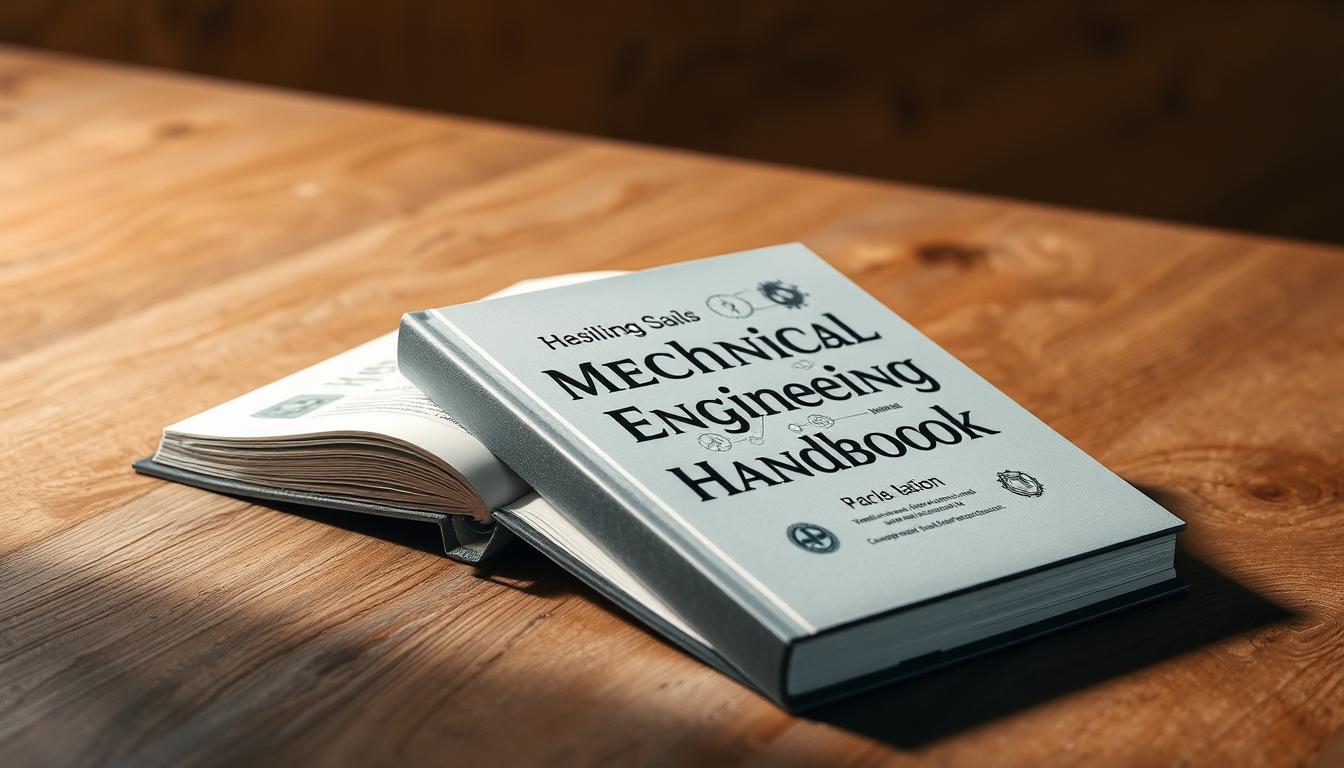Welcome to the Handbook of Mechanical Engineering. It’s a detailed guide that covers the basics of this exciting field. You’ll learn about the key theories, tools, and uses of mechanical engineering. It’s perfect for both new engineers and those with experience.
This handbook is a key resource that highlights the need for sustainability. It shows how physics and materials science come together in design. With help from “Mechanical Engineering: A History” by B. C. Messler and the American Society of Mechanical Engineers (ASME), we’ll dive into the importance of these principles. Let’s see how mechanical engineering affects different industries and influences our future.
Introduction to Mechanical Engineering:
Mechanical engineering is a key field that deals with designing, analyzing, and making many systems and products. I’ve learned that engineers use mechanics, thermodynamics, fluid dynamics, and materials science to solve tough problems. This field drives innovation in areas like aerospace and robotics, and it’s also important for sustainable development.
Knowing how important mechanical engineering is helps us see its big impact on our world. It makes our lives better by creating efficient ways to travel and advanced robots. Mechanical engineers now face new challenges, pushing technology and sustainability forward.
Key Principles of Mechanical Engineering:
Exploring mechanical engineering, I see its core principles are vital. Mechanics is a key part, split into statics, dynamics, and fluid mechanics. These areas help us understand how forces affect systems, affecting their stability and performance.
Thermodynamics is also key, dealing with energy transfer. It’s essential for understanding heat engines and refrigeration cycles. Knowing thermodynamics helps me design systems that use energy efficiently.
Materials science is another critical area. It helps me choose the right materials for engineering projects. By studying materials science, I can predict how materials will behave under different conditions.
Mechanical Engineering Tools and Technologies:
In mechanical engineering, the right tools and technologies are key. They ensure efficiency and precision. Engineering software has greatly improved, making it easier to integrate various processes.
CAD tools like SolidWorks and AutoCAD are essential. They let engineers create detailed 2D and 3D models accurately. This makes the design process smoother.
Simulation technologies are also vital. They change how we test and validate systems. Using FEA and CFD, I can predict how systems will behave. This makes systems more reliable and saves money on prototypes.
Advanced technologies like artificial intelligence and machine learning are changing engineering. They help optimize design and manufacturing. Keeping up with these tools is important for professional growth.
Mechanical Engineering Applications:
Mechanical engineering is key in many fields, showing its wide use in real life. In aerospace, engineers make parts that keep planes safe and efficient. This is vital for flying safely.
The car industry also benefits a lot from mechanical engineering. I see how new car designs and making them are improved. This makes cars better and more eco-friendly.
In the energy field, mechanical engineers help make systems that use green energy. My work is about making wind and solar power better. This shows how mechanical engineering helps the planet.
Robotics is another area where mechanical engineering shines. It combines mechanics, electronics, and computer science. This makes robots very useful in many fields, like making things and helping in healthcare.
Career Opportunities in Mechanical Engineering:
The field of mechanical engineering offers many career paths. Design engineers create new products, while research and development engineers explore new technologies. Project managers oversee projects from start to finish, ensuring they run smoothly.
Each role has its own needs but all offer chances for growth. These careers are key to the industry’s success.
Job opportunities in mechanical engineering are strong and growing. This is thanks to new technologies in fields like aerospace, automotive, and renewable energy. These sectors need skilled people to keep up with their needs.
Staying in school and learning new things is important for a career in mechanical engineering. Getting a license or certification can open up more job options. Keeping up with new technologies makes you more attractive to employers.
Future Trends in Mechanical Engineering:
Looking into the future of mechanical engineering, we see big changes. New technologies like additive manufacturing, or 3D printing, are leading the way. This method lets engineers make complex parts more efficiently, saving time and materials.
Automation and robotics are also changing the game. The Internet of Things (IoT) makes mechanical systems smarter and more connected. This boosts efficiency and helps predict when maintenance is needed, making systems more proactive.
Sustainability is key in mechanical engineering’s future. Engineers are working on smart materials and green practices. They aim to cut down on carbon emissions without losing performance. These efforts are shaping a future filled with innovative solutions.
